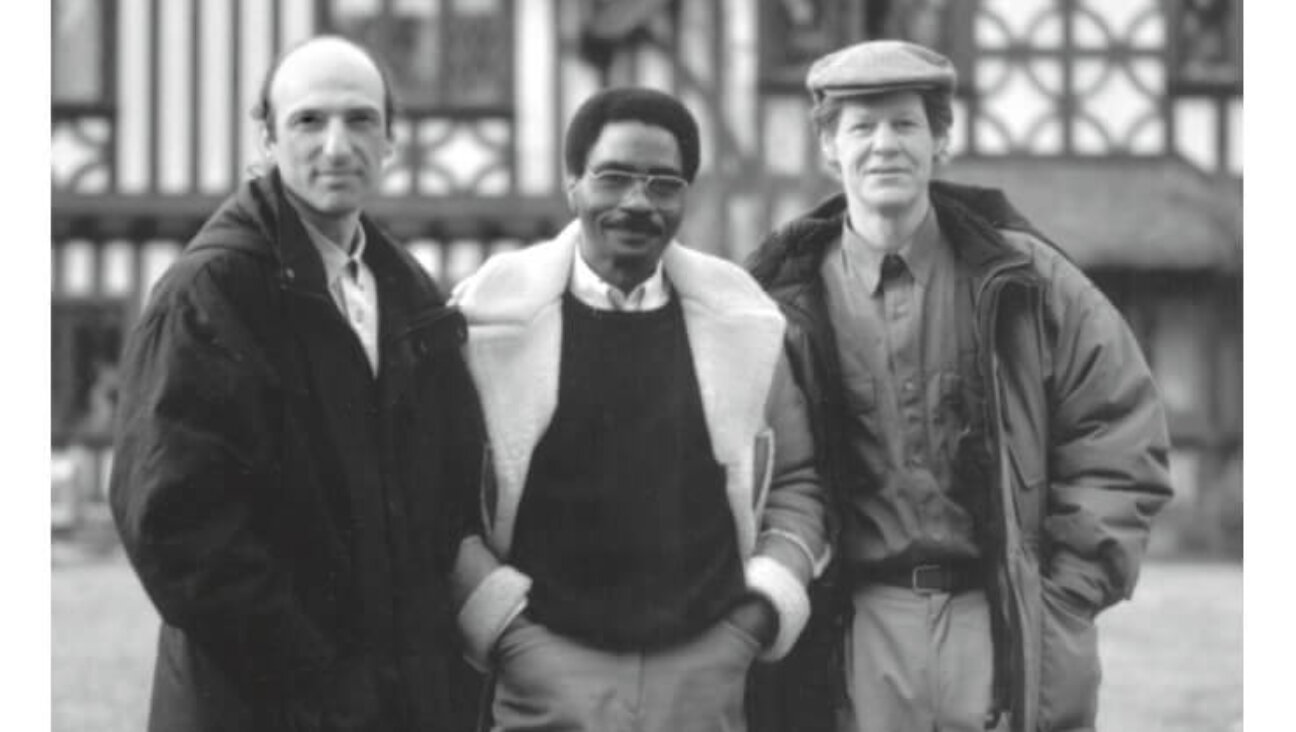May 14, 2004
O.U. Firm in Position
An April 30 article on the New York City “Equal Benefits Bill” suggests that Agudath Israel of America is about to compromise its position on homosexual relationships in order to remain eligible for city funding (“Orthodox Group Opens Door to Same-Sex Benefits,” April 30).
That is nonsense. We would never trade in our religious principles for a pot of government lentils.
We proved the point 20 years ago. At that time, Mayor Ed Koch issued Executive Order 50, which would have required all city contractors to pledge nondiscrimination in employment on the basis of sexual orientation. As a beneficiary of city funding that helped subsidize some of our charitable community service projects, Agudath Israel would have been bound by the executive order. But this would have required us to agree to hire openly homosexual people in role model positions — a condition of contract we regarded as religiously unacceptable. We sued the mayor and the city, putting our city funding at risk. We won that lawsuit, and Koch ultimately issued Executive Order 94 recognizing the right of any religiously affiliated city contractor to “tak[e] such [employment-related] action as is calculated by such organization to promote the religious principles for which it is maintained.”
We put our money where our mouth was then, and we would be prepared to do it again if any government funding would come with strings attached that we would regard as religiously objectionable. Such a potential scenario presented itself again last year, when the Equal Benefits Bill was initially introduced in the City Council. The bill would have required all city contractors, including religious organizations, to formally recognize domestic partner relationships by certifying that they provide to domestic partners benefits that are identical to those of spouses of employees.
In studying the bill, our rabbinic leaders felt that formal recognition of a relationship the Torah regards as immoral would be deeply offensive. They were also troubled by the bill’s failure to follow the precedent embodied in Executive Order 94, as well as state and city statutory law, exempting religious organizations from anti-discrimination requirements that are at tension with religious beliefs. They therefore authorized us to do whatever we could to defeat the bill or at least get it amended to exempt religious organizations from its requirements.
We did not succeed in carrying out that mandate, but our discussions with the bill’s chief sponsor and the leadership of the City Council eventually resulted in an amendment to the bill that significantly softens its potential impact. That amendment gives religious organizations that object to a policy of domestic partnership coverage the option of adopting a policy that provides “household member” coverage instead — an option that allows such organizations to avoid formally recognizing a relationship they regard as sinful and immoral. While we continued to maintain our opposition to the bill even as amended, there is no question that the bill is less problematic than it originally was, as it preserves, at least to some extent, the important principle that the objections of religious organizations to religiously offensive provisions of civil rights laws must be respected.
Whether we will continue our contractual relationship with the city if the bill becomes law will ultimately be for our rabbinic leadership to decide. Without presuming to anticipate their decision, I would like to take issue with the suggestion in your report that if we accept city contracts we will be just like Yeshiva University, which allows university-supported gay groups on campus and makes its housing available to unmarried couples involved in relationships that Judaism regards as immoral.
Years ago, Yeshiva University made a decision to structure itself as a secular entity despite its Orthodox identity. It is thus unable to avail itself of the aforementioned religious exemptions from the anti-discrimination laws. Hence the sad spectacle of its gay clubs and religiously offensive housing policy.
Agudath Israel, in contrast, is structured as a religious organization, and we take full advantage of the protections available to us under those religious exemptions.
In this particular context, those protections enable us to hire only such people who we feel will promote the religious principles of the Agudath Israel movement — and, if the Equal Benefits Bill becomes law, opt out of having to adopt a policy that provides recognition to a relationship the Torah regards as illicit.
The jarring example of Y.U. provides an important cautionary tale about what might happen to religious institutions if society moves away from recognizing that they are entitled to be treated differently under the anti-discrimination laws. For our part, at least, we will continue to do our utmost to preserve that entitlement.
David Zwiebel
Executive Vice President
for Government and Public Affairs
Agudath Israel of America
New York, N.Y.
A Cult or a Culture?
I found the April 30 article about Steve Hassan, “de-programmer” of victims of cults, quite interesting (“Finding Will With Grace”).
I was reminded of the saying of an old psychology professor of mine: “Socially acceptable neuroses are much more dangerous than socially unacceptable neuroses; how many wars have been fought in the name of alcohol and how many in the name of religion?”
Hassan means well, but perhaps his attempts to return the prodigal to the “tyranny of the majority” and “conventional wisdom” might be ill-advised. It could be said that all the worlds’ major religions started as “cults.” Buddha, Jesus and Mohammed all started with very small bands of acolytes. And are the numerous Pentecostal, Adventist and Mormon groups to be called denominations, sects or cults? (Ours is a denomination, yours is a sect, theirs is a cult.)
I worry more about the mental bonds of fundamentalist established religions than I do about splinter groups and “heretics” who may perhaps bear the seed of a new beast slouching toward Bethlehem or Jerusalem.
Art Victor
Turners Falls, Mass.
Come Clean on Mikvah
I read the May 7 article on the Newton Mikvah with interest (“Finding ‘Something for Everyone’ in the Mikvah”). Forward readers should know, though, that the University of Judaism built the first North American non-Orthodox mikvah in 1983, and ever since then it has been used to observe the laws of family purity and for conversions by Jews of all persuasions. Now, in fact, Conservative, Reform and Reconstructionist rabbis have joined together in a joint conversion project, entitled the Sandra Caplan Community Bet Din, so that Jews by choice may choose to be converted by a truly communal religious court, using the University of Judaism mikvah for that rite.
Rabbi Elliot Dorff
Rector
University of Judaism
Los Angeles, Calif.
Be Clear on Swiss Banks
About 50% of the individuals demonstrating in front of the Federal Court House on April 29 were immigrants from the former Soviet Union (“Passions Flair at Swiss Banks Hearing,” May 7). They had joined the American survivor groups in asking for a fair and balanced share of the funds for all victims of the Nazis now living in the United States. They, more than anyone else, know the true extent of needs in both countries.
When queried, they explained that in the former Soviet Union they were living rent free, whereas here in the United States they are getting about $600 in subsidies, but must pay rents of $800 to $1,200. They must frequently choose between food or medications.
However, the entire topic of respective needs is fundamentally an irrelevant issue. The Swiss banks settlement is essentially a legal issue. Survivors all over the world had to fill out lengthy questionnaires — before an imposed deadline — asking for information on accounts their families may have had, on their insurance policies, on whether they were turned away from the Swiss borders or mistreated, and on all the assets and belongings that were looted.
How many of the former Soviet Jews had accounts in Swiss banks? How many were turned away at the borders? How many had insurance-policies? How many had the kind of assets that would have been looted by the Nazis and could have been converted to find their way into Swiss banks?
There is no doubt that there are numerous needy Jews in the former Soviet Union, and we do not intend to belittle their plight. There are also numerous needy Jews in Israel, in Argentina, in the United States and elsewhere. All deserve our assistance.
A week ago, an advisory committee of a Social Service agency on which I serve examined some 50 current destitute cases in New York City. Many needed help to pay their utilities, rent and for medication. Among them was a family about to become homeless. The maximum we are permitted to grant under current guidelines is $2,500 annually, far from sufficient to make a serious dent in such desperate situations. The fact that the cost of services in the United States is so much higher than in the former Soviet Union does not seem to have been considered when 75% of the funds were allocated to the latter.
The Swiss banks legal settlement was not intended to be a general relief fund. Regrettably, the amount that was obtained in the negotiation is far too small. No one has the right to play God by taking the rightful restitution from one needy victim of the Nazis in order to give to another individual who is presumed to have greater needs. Charity has to be voluntary.
Leo Rechter
President
National Association of Jewish Holocaust Survivors.
Jamaica Hills, N.Y.
A message from our CEO & publisher Rachel Fishman Feddersen

I hope you appreciated this article. Before you go, I’d like to ask you to please support the Forward’s award-winning, nonprofit journalism during this critical time.
We’ve set a goal to raise $260,000 by December 31. That’s an ambitious goal, but one that will give us the resources we need to invest in the high quality news, opinion, analysis and cultural coverage that isn’t available anywhere else.
If you feel inspired to make an impact, now is the time to give something back. Join us as a member at your most generous level.
— Rachel Fishman Feddersen, Publisher and CEO























